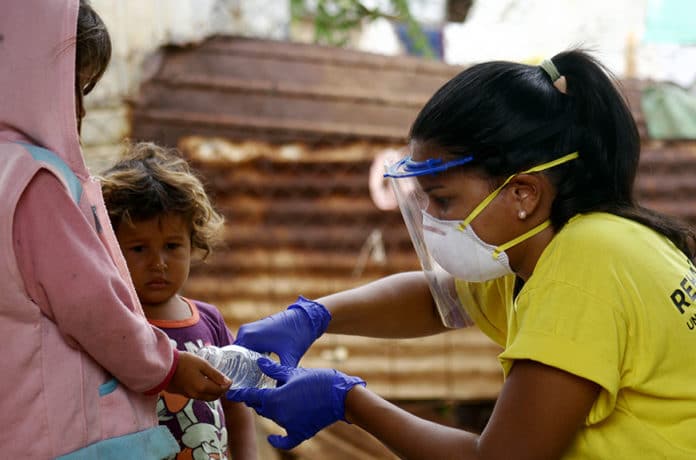On World Humanitarian Day, observed every year on August 19th, the United Nations honours humanitarian workers, who make an extraordinary effort to help women, men and children whose lives have been affected by crises and this year by COVID-19.
According to the United Nations Office for the Coordination of Humanitarian Affairs (OCHA), 2019 was the most violent year ever for humanitarian workers. In 2019, a total of 483 humanitarian workers were attacked, 125 killed, 234 injured and 124 kidnapped in 277 recorded incidents. This is an increase of 18% in the number of victims when compared to 2018.
World Humanitarian Day was designated by the UN General Assembly eleven years ago after the attack on the UN complex in Baghdad, on 19 August 2003 in which killed 22 people, including the Secretary-General’s Special Representative for Iraq, the Brazilian diplomat Sérgio Vieira de Mello. Since then, nearly 5,000 aid workers have been killed, injured or kidnapped. Between 2010 and 2019, there was a 117% increase in attacks compared to the previous decade.
#RealLifeHeroes
This year, to honor the efforts of humanitarian workers, OCHA and its partners are presenting the personal stories of some of the #RealLifeHeroes on the ground, especially local aid workers. Their inspirational stories can be read here.
The campaign highlights the work of those who continue to save and protect lives, despit conflicts, insecurity and risks associated with COVID-19. The campaign features personal stories from 17 humanitarians, many from countries in crisis.
Since the beginning of the Covid-19 outbreak, there have been worrying reports of incidents against workers and facilities, including threats and acts of violence often fuelled by misinformation and fear. There are records of destroyed and burned health centres, vandalized essential medical equipment. There are also reports of incidents of hostile attitudes linked to stigmatization and perception of foreigners as agents of infection of COVID-19.
According to OCHA, humanitarian operations in Mali, Mozambique, Libya, Nigeria and Yemen are reporting attacks on IDP camps, hospitals and schools. These attacks threaten the security of millions and increase humanitarian needs. Insecurity is also increasing in areas where violence and insecurity have not been a major concern until now, such as in Cameroon, Iraq, Niger, South Sudan and Yemen.
Humanitarian workers continue to work to prevent, contain and treat COVID-19 despite unprecedented restrictions and insecurity.
Even with these challenges, the humanitarian system was quick to respond and provided 123,430 tests to countries with Humanitarian Response Plans. It is also planned the delivery of more than one million tests and about 5.9 million pieces of personal protective equipment.
The UN estimates that more than 23 million displaced people have received assistance, services to support gender-based violence have been maintained or expanded in more than 25 countries, more than 18 million people have received essential health care, at least 36 million people had accessed to water and hygiene products. Around 93.6 million children and young people were also supported with distance learning.
UN humanitarian work in 2019
The impact of protracted conflicts, climate shocks and the COVID-19 pandemic has elevated humanitarian needs to unprecedented levels, with more than 166 million people now in need of assistance.
According to the Secretary-General’s report on the work of the UN in 2019, published recently, the number of displaced persons has increased again to record levels, with 79.5 million displaced by conflict, violence and persecution. The eight worst food crises in the world have all been linked to conflicts and climate shocks. For millions of people, the exposure to these multiple risks has reduced their resilience and increased the likelihood of a humanitarian crisis.
The United Nations works to ensure coherent, coordinated, effective and timely humanitarian responses to save lives and alleviate human suffering in natural disasters and complex emergencies.
In 2019, the UN worked with partners to mobilize more than $18 billion in contributions to life-saving assistance for more than 117 million people.




